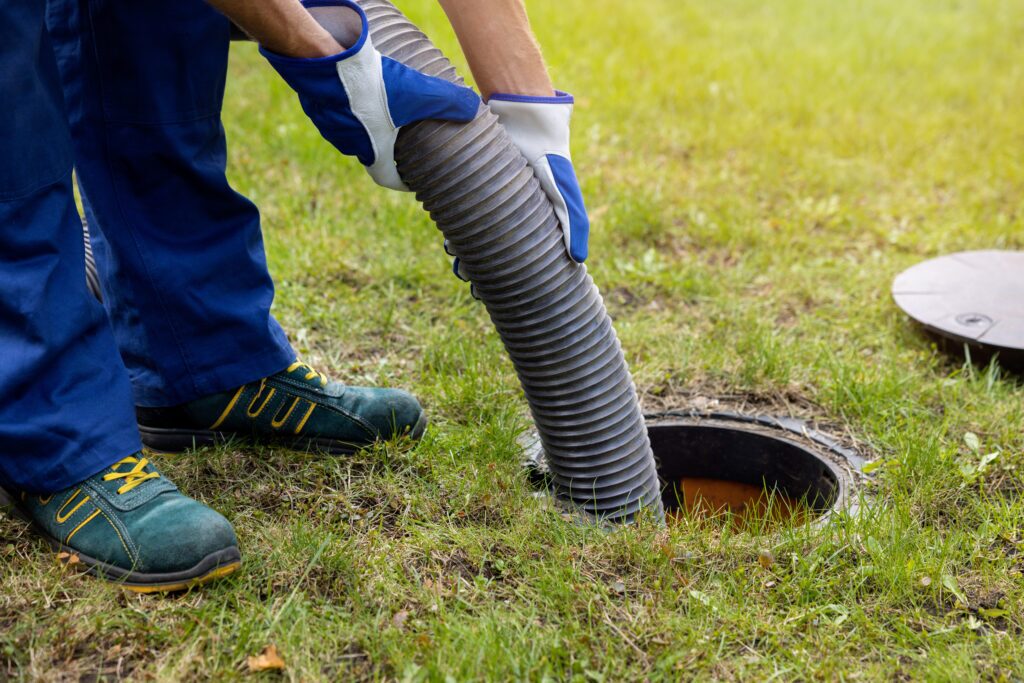Regular septic tank pumping services are essential for keeping your septic system functioning properly. Over time, solid waste accumulates in your tank, and if it’s not removed, it can lead to backups, slow drainage, and even costly system failures. But what exactly happens during a septic pumping service? In this guide, we’ll break down the process, why it’s necessary, and how often you should schedule maintenance.
Why Septic Tank Pumping Services Are Important
Your septic tank separates solid waste from liquid wastewater. The solids settle at the bottom, forming sludge, while oils and grease float to the top as scum. The liquid waste flows out to the drain field for further treatment.
However, if the sludge and scum layers become too thick, they can block the outlet pipe, causing:
- Slow drains or gurgling sounds in your plumbing
- Unpleasant odors inside or outside your home
- Sewage backups in toilets or sinks
- Damage to the drain field, leading to costly repairs
Regular septic tank pumping services prevent these issues by removing excess waste before it becomes a problem.
What Happens During a Septic Tank Pumping Service?
When you schedule septic tank pumping services, a professional will:
1. Locate and Inspect the Tank
The technician will find your septic tank and inspect it for any signs of damage, such as cracks, leaks, or excessive buildup. If you don’t know where your tank is, they can use specialized equipment to locate it.
2. Measure Sludge and Scum Levels
Using a measuring tool, the technician will check the depth of the sludge and scum layers. If these levels are too high, it’s time to pump the tank.
3. Pump Out the Waste
A powerful vacuum truck is used to remove sludge, scum, and liquid waste from the tank. This process ensures your system continues functioning efficiently.
4. Inspect the Tank After Pumping
Once the tank is empty, the technician will inspect the baffles and other components to ensure everything is in good condition. If any issues are detected, they may recommend repairs.
5. Close and Secure the Tank
After the inspection, the tank is securely closed, and the surrounding area is restored to its original condition. The technician will also provide recommendations for maintaining your system until the next service.
How Often Should You Schedule Septic Tank Pumping Services?
The frequency of services depends on several factors, including:
- Household size: More people means more waste, requiring more frequent pumping.
- Tank size: Smaller tanks fill up faster and need more frequent service.
- Water usage: High water usage can overload your system and speed up sludge accumulation.
- Waste disposal habits: Flushing non-biodegradable items or excessive grease can lead to faster buildup.
As a general rule:
- Households with 1-3 people should pump their tank every 3-5 years.
- Households with 4-6 people should schedule pumping every 2-3 years.
- Larger households or homes with small tanks may need annual service.
Signs Your Septic Tank Needs Pumping
If you’re unsure whether it’s time for septic tank pumping services, watch for these warning signs:
- Slow draining sinks, showers, or toilets
- Unpleasant odors coming from your drains or yard
- Pooling water or soggy ground near your drain field
- Sewage backups in toilets or sinks
- Lush, overly green grass near your septic system (a sign of leakage)
If you notice any of these issues, schedule a septic inspection and pumping as soon as possible.
How to Maintain Your Septic System
In addition to regular septic tank pumping services, follow these tips to keep your system in top shape:
- Use water efficiently to avoid overloading the tank.
- Avoid flushing non-biodegradable items like wipes, paper towels, or feminine hygiene products.
- Keep grease and oils out of the drain to prevent buildup.
- Don’t park or build over the septic system to avoid damage.
- Schedule routine inspections to catch potential problems early.
Contact All About Plumbing & Septic for Septic Tank Pumping Services
Regular septic tank pumping services are key to maintaining a healthy, efficient septic system. By understanding what to expect during service and recognizing when your tank needs pumping, you can avoid costly repairs and ensure your home’s wastewater system operates smoothly.
If you need professional septic tank pumping services in Mills River, NC, or surrounding areas, contact All About Plumbing & Septic today. Our expert team is ready to help keep your septic system running at its best!
FAQ’s About Septic Tank Pumping Services
1. How often should I pump my septic tank?
Septic tanks typically need to be pumped every 2–5 years, depending on household size, water usage, and tank capacity. Larger households or homes with smaller tanks may require annual service.
2. What are the signs that my septic tank needs pumping?
Warning signs include slow drains, sewage backups, unpleasant odors, pooling water near the drain field, and unusually green grass in your yard. These indicate that sludge levels are too high and pumping is needed.
3. What happens during a septic tank pumping service?
A technician will locate and inspect your tank, measure sludge and scum levels, pump out waste using a vacuum truck, inspect components like baffles, and secure the tank after service.
4. How can I maintain my septic system between pumping services?
To keep your system healthy, use water efficiently, avoid flushing non-biodegradable items, keep grease out of drains, don’t build or park over the system, and schedule regular inspections.


Schedule a Service or Request a FREE Estimate Now: